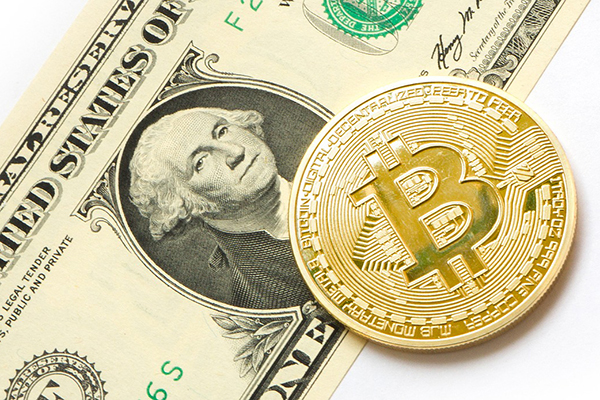In the previous post we talked about:
- Logistics and transport
- Internet of Things
- Food and traceability
- Tourism and hotels
- Energy
- Insurance
- Lawyers, law and legal sector
- Human Resources
- GDPR
14. Voting and Elections

If we were to consult our politicians they would surely ensure that it is impossible to rig a few votes. And they never lie, do they?
What we can say is that a blockchain voting system would dispel all concerns by providing an infinitely safer platform.
In applications based on blockchain to manipulate a single vote, the whole blockchain would have to be modified.
This would require excessive computing power. No one has that much computing power, not even Google or Facebook servers.
In addition, the use of blockchain technology could increase low voter turnout. Some voters do not go to the polls because they have to identify and align with a party or simply because they are lazy.
With future applications of blockchain voters can transfer their voting online and maintain their anonymity.
One of the success stories of blockchain in terms of voting systems, can be seen again in the banking sector. An example of the use of blockchain is Banco Santander, which has used the blockchain for the vote of its General Shareholders’ Meeting in 2018.
15. Telecommunications

Telecommunication companies have found in the blockchain a perfect tool to enhance their services.
So much so that a study conducted by Research and Markets reveals that blockchain technology in telecommunications will go from generating 46.6 million dollars in 2018 to become an industry worth 993.8 million dollars in 2023.
Its applications will allow you to add third party services to your systems only by adding your blockchain, which will create a much more flexible telecommunications services network.
In addition, it is expected to be able to strengthen both the internal processes and the business services that these companies can offer.
However, all the efforts of the telecommunications industry are aimed at improving the security of their systems through the use of blockchain.
This is aimed at protecting the amount of data, both personal and confidential, handled by these companies and has been driven by the numerous security problems caused by traditional systems.
HTC Exodus: The blockchain phone
Mobile phone manufacturers have also joined in offering blockchain services. I
t is the example of the Taiwanese HTC that at the end of 2018 launched to the market its Exodus 1, a smart phone that will store crypto coins offline (as a physical purse) and that can act as a node within a blockchain network.
In addition, it allows to run Dapps (decentralized applications), such as the popular Ethereum Cryptokitties game.
16. Registration of property
There is a public interest in the existence of a secure and transparent land register database and the collection of citizens’ rights.
Currently, this information is hosted on centralized servers that, although in a fairly developed state, are not dynamic enough to absorb the continuing transformation of the real estate sector.
Current blockchain applications would provide reliability and transparency.
In addition, it is estimated that it will make the real estate market more dynamic (national and international), increasing the confidence in the registered information and in the procedure followed.
One of the areas where the blockchain has been most integrated is precisely in the databases of land registers, which is one of the success stories of blockchain.
So much so that many countries have begun to develop blockchain applications for their registries: Georgia, Sweden, Ukraine, United Kingdom, Honduras, Ghana, Estonia, Dubai … But perhaps the most significant case is Japan, a pioneer in adopting this technology.
17. Health

The health sector does not escape the innovative applications of the block chain. Many technology companies are currently developing blockchain services for the healthcare sector. However, few known companies are using these practical uses of blockchain.
Some of the potential uses of the blockchain in healthcare are:
- A control on the medical history of the patients. The data could be shared among several medical centers, in a decentralized manner and with immediacy and security.
- Confidentiality for the patient. Provided by encryption and block chain security.
- Traceability and drug control. By integrating blockchain in pharmacies, doctors would have an absolute knowledge of drug consumption.
- Avoid fraud in medical policies and control bad practices in health services.
18. Education
Currently, blockchain technology applied to education is still in an experimental phase.
However, numerous studies, such as the one carried out by the European Commission, highlight the fact that the blockchain can transform the education sector.
Some of the innovative applications of blockchain applied to education are:
- Creation of platforms for sharing documents with permissions, encryption and systems to prevent theft and fraud.
- Issuance of certificates and official documents.
- Greater protection of intellectual property.
19. Journalism

At a time when journalism is suffering a severe crisis, translated into the closure of newspapers and newsrooms, blockchain technology has emerged as an alternative means to make such projects profitable.
In these cases, the blockchain seeks to create new channels of diffusion and sources of financing, to make these newsrooms and even the work of independent journalists profitable.
Continue reading at “What Are The Uses Of Blockchain? In Addition To The Cryptocurrencies (Part IV)”



